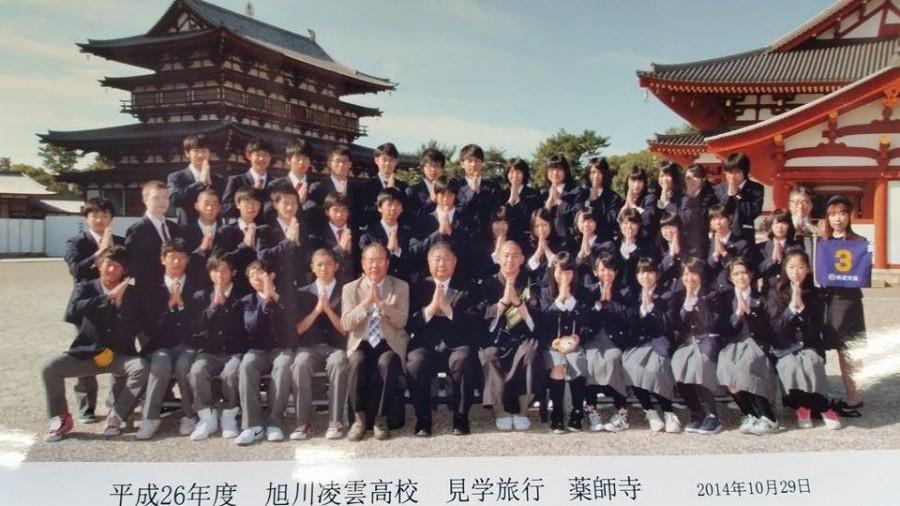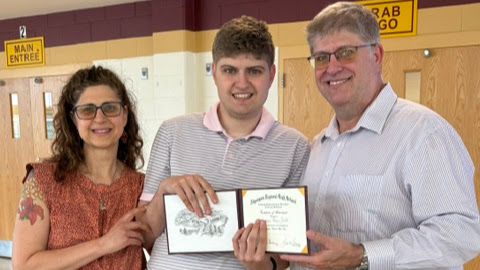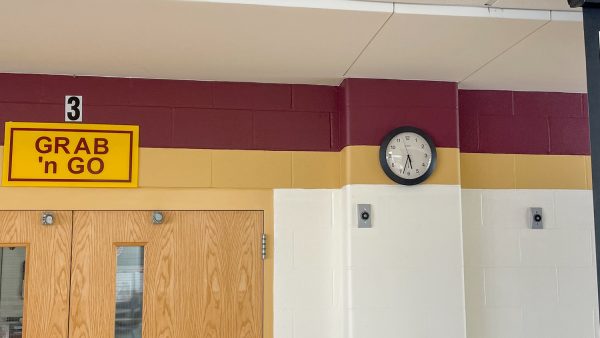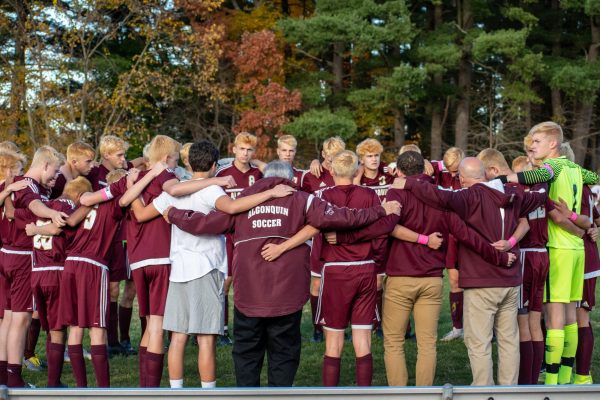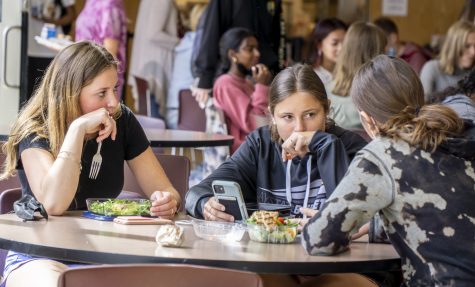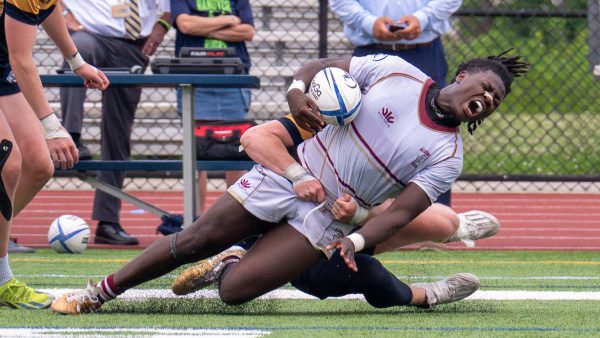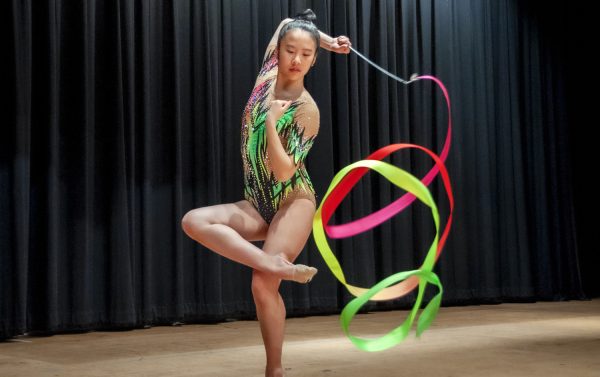Student studies in Japan, experiences new culture
Junior James Junker studied abroad in the mountainous landscape of Hokkaido, Japan for the past six months, getting a taste of the school system and culture, while halfway around the world.
The choices in exchange programs were abundant, but picking one was difficult at first for Junker. Although unsure about going to Japan at first, Junker finally decided to spend the year in Hokkaido.
“I chose the dark horse which had so much more to explore and the opportunity of a life time passing me by,” Junker said.
Once orientation was over, and everyone had their information for further travel, Junker was separated from the other exchange students he had met on the flight and journeyed to Hokkaido, in the north of Japan. He was the only exchange student that would be staying in Hokkaido.
The host family had a son and daughter, both older than Junker, and he would be their
tenth exchange student.
“They are pretty much veterans at this type of thing,” Junker said.
One of the biggest challenges of going to the foreign world of Japan was the language
barrier. Before he left the US, Junker taught himself greetings and words to carry out some form of communication in Japanese.
“I picked up the basics before I came. But when I first showed up, I forgot all of it,”
Junker said.
After almost six months of keen listening and Japanese speaking, Junker definitely shows excitement when he can let his guard down.
“It’s a really good feeling at this point, late in the trip, when you see an English speaking foreigner that you can talk with,” Junker said. “It allows me to let loose and joke around without small cultural walls, like the fact that Japanese people do not use sarcasm in humorous conversation.”
Some classes came easy for Junker, but a little help along the way was always
appreciated.
“My host family has been great,” Junker said. “They helped with my grammar and school work throughout the trip. A lot of it came easy at first, and small corrections have helped a ton.”
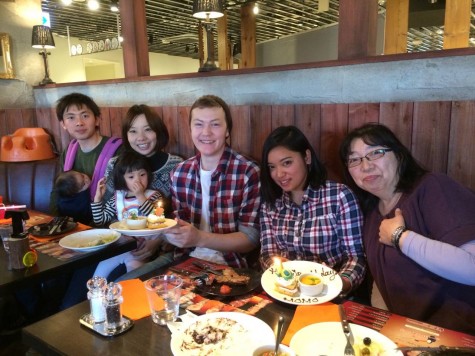 Another large hurdle was the shift in schools. Japan has a three year high school
Another large hurdle was the shift in schools. Japan has a three year high school
equivalent and Junker was a “second year” student. As the only non-Japanese student at Hokkaido’s high school, Junker had a lot to adjust to.
“There are 600 students in my school,” Junker said. “The class sizes are about 40 and you stay with them all day. In Japan you don’t change classes. The teachers come to you and rotate around. And there are ten minute breaks throughout the day for socializing.”
After seeing both an American school and Japanese school, Junker wishes he could “put the pros of both systems together, because it would be a perfect way of educating.”
Junker adjusted well to the differences in transportation, language, culture, and food, which he raved about.
“The rice is so much softer and tastier and delicious,” he said. “I miss steak and other meats, because it is less abundant here, but the seafood is amazing and fresh.”
One unexpected hurdle for Junker was shoe size.
“Japanese people, characteristically have very small feet,” Junker said. “I wear a
size twelve shoes. That’s thirty centimeters and trying to find ski boots here in Hokkaido is
ridiculous. I have only met two people that had the same size shoe, and I had to borrow shoes
from them.”
There were a few things Junker truly missed from home. For example, Junker missed American TV, although Japanese TV and its variety of game shows allured him. Moreso, he missed his family and American culture.
“But I wouldn’t trade anything for this experience,” Junker said. “I have a new group of friends including my host family and others from all over the world. I would do it again in a heartbeat.”
Junker returned to the US in early February, just a few weeks in to second semester.
“It’s going to be weird leaving this Japanese experience, and going back to reality,” Junker said. “For almost six months, I’ve lived the life of a Japanese teen and I have to go back to my life, and adjust to the school work, and prepare for college.”
A donation of $40 or more includes a subscription to the 2025-26 print issues of The Harbinger. We will mail a copy of our fall, winter, spring and graduation issues to the recipient of your choice. Your donation supports the student journalists of Algonquin Regional High School and allows our extracurricular publication to purchase equipment and cover our annual website hosting costs.



